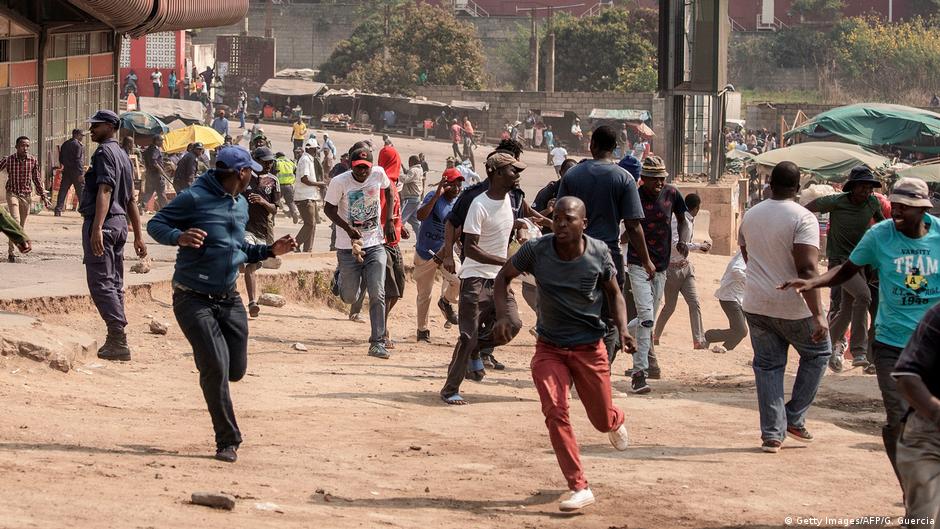
Credit: GIANLUIGI GUERCIA/AFP via Getty Images, DW
Tucked away between the borders of South Africa and Mozambique is the kingdom of Eswatini, the last monarchy in Africa. Formerly known as Swaziland, Eswatini is a small nation a bit larger than Connecticut and home to 1.1 million people.
It’s also the world’s most recent hope of an autocratic country democratizing.
What’s happening in Eswatini?
On May 14th, a 25 year old law student, Thabani Nkomonye, was found dead in a field on the outskirts of the city of Manzini. Police claimed that Nkomonye died in a car accident, but young activists identified a different culprit: the police themselves. Widespread police reform protests broke out across the country under the slogan “#JusticeforThabani,” but they stirred up long-simmering discontent. Police reform protests morphed into pro-democracy protests two weeks ago and show no sign of stopping.
Eswatini is ruled by King Mswati III, an absolute monarch whose government is responsible for innumerable human rights abuses, including the murder of political prisoners, threatening the press, and the arbitary detention and torture of citizens. Mswati III made international headlines two years ago for using state money to purchase 120 BMWs and 19 Rolls Royces for his 15 wives in a country where some 59 percent of the rural population live on less than $1.90 a day and 26 percent of adults suffer from HIV.
Democracy advocates are demanding the free election of the prime minister and a repeal of the ban on opposition parties. This ban dates back to the rule of King Mswati III’s father, Sobhuza II, who dismantled Swaziland’s young democracy and replaced it with an absolute monarchy in the 1970s. The free election of the prime minister is a concession that protestors won in 2005, but upon which King Mswati III ultimately reneged. Protestors are yet to rally behind the complete dissolution of the monarchy.
Unfortunately, that hasn’t led Mswati’s government to respond any less brutally. Mswati’s government banned protests on June 26, and has since authorized security forces to crush dissent with appalling force. Amensty International has reported kidnappings and torture at the hands of state officials, as well as the use of live ammunition on protestors. At least 27 people have been killed and more than 150 were hospitalized with gunshot wounds. Nevertheless, the protests continue.
In a year of democratic backsliding and as Afghanistan’s government crumbles under the onslaught of the Taliban, democracy’s place in the world seems dangerously threatened. The Eswatini protestors give us hope that democracy will advance once more, and that more than one million people in Eswatini will win the freedoms we all enjoy.



